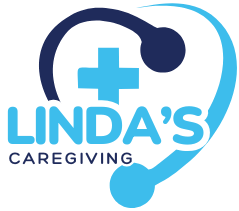10 Tips for Maintaining Healthy Body Weight

When it comes to knowing what’s healthy, even qualified experts often seem to hold opposing opinions. This can make it difficult to figure out what you should actually be doing to optimize your health.
Steps you can take:
Keeping track of your body weight on a daily or weekly basis will help you see what you’re losing and/or what
you’re gaining.
2. Limit Unhealthy Foods and Eat Healthy Meals
Do not forget to eat breakfast and choose a nutritious meal with more protein and fiber and less fat, sugar, and calories. For more information on weight-control foods and dietary recommendations, please check the following website: www.hsph.harvard.edu/obesity-prevention-source/obesity-causes/diet-and-weight/.
3. Take Multivitamin Supplements
To make sure you have sufficient levels of nutrients, taking a daily multivitamin supplement is a good idea, especially when you do not have a variety of vegetables and fruits at home. Many micronutrients are vital to your immune system, including vitamins A, B6, B12, C, D, and E, as well as zinc, iron, copper, selenium, and magnesium.
However, there’s currently NO available evidence that adding any supplements or “miracle mineral supplements” to your diet will help protect you from the virus or increase recovery. In some cases, high doses of vitamins can be bad for your health.
4. Drink Water and Stay Hydrated, and Limit Sugared Beverages
Drink water regularly to stay healthy, but there is NO evidence that drinking water frequently (e.g. every 15 minutes) can help prevent any viral infection. For more information on drinking water and coronavirus, please check the following EPA website: www.epa.gov/coronavirus/coronavirus-and-drinking-water-and-wastewater.
Healthy movement may include walking, sports, dancing, yoga, running or other activities you enjoy.
Eat a well-balanced, low-fat diet with lots of fruits, vegetables and whole grains. Choose a diet that's low in saturated fat and cholesterol, and moderate in sugar, salt and total fat.
Avoid injury by wearing seatbelts and bike helmets, using smoke and carbon monoxide detectors in the home, and using street smarts when walking alone. If you own a gun, recognize the dangers of having a gun in your home. Use safety precautions at all times.
Don't smoke, or quit if you do. Ask your health care provider for help. UCSF's Tobacco Education Center offers smoking cessation and relapse prevention classes as well as doctor consultations for smokers trying to quit.
Drink in moderation if you drink alcohol. Never drink before or while driving, or when pregnant.
Ask someone you trust for help if you think you might be addicted to drugs or alcohol.
Help prevent sexually transmitted infections (STIs) and HIV/AIDS by using condoms every time you have sexual contact. Condoms aren't 100 percent foolproof, so discuss STI screening with your provider. Birth control methods other than condoms, such as pills and implants, won't protect you from STIs or HIV.
Brush your teeth after meals with a soft or medium bristled toothbrush. Also brush after drinking and before going to bed. Use dental floss daily.
Stay out of the sun, especially between 10 a.m. and 3 p.m. when the sun's harmful rays are strongest. You are not protected if it is cloudy or if you are in the water — harmful rays pass through both. Use a broad spectrum sunscreen that guards against both UVA and UVB rays, with a sun protection factor (SPF) of 15 or higher. Select sunglasses that block 99 to 100 percent of the sun's rays.
Maintaining a Healthy Outlook
Women today have busy, demanding lives. You may feel pulled in different directions and experience stress from dealing with work, family and other matters, leaving little time for yourself. Learning to balance your life with some time for yourself will pay off with big benefits — a healthy outlook and better health.
Steps you can take:
Stay in touch with family and friends.
Be involved in your community.
Maintain a positive attitude and do things that make you happy.
Keep your curiosity alive. Lifelong learning is beneficial to your health.
Healthy intimacy takes all forms but is always free of coercion.
Learn to recognize and manage stress in your life. Signs of stress include trouble sleeping, frequent headaches and stomach problems; being angry a lot; and turning to food, drugs and alcohol to relieve stress.
Good ways to deal with stress include regular exercise, healthy eating habits and relaxation exercises, such as deep breathing or meditation. Talking to trusted family members and friends can help a lot. Some women find that interacting with their faith community is helpful in times of stress.
Get enough sleep and rest. Adults need around eight hours of sleep a night.
Talk to your health care provider if you feel depressed for more than a few days; depression is a treatable illness. Signs of depression include feeling empty and sad, crying a lot, loss of interest in life, and thoughts of death or suicide. If you or someone you know has thoughts of suicide, get help right away. Call 911, a local crisis center or (800) SUICIDE.
UCSF Health medical specialists have reviewed this information. It is for educational purposes only and is not intended to replace the advice of your doctor or other health care provider. We encourage you to discuss any questions or concerns you may have with your provider.
5. Exercise Regularly and Be Physically Active
At this time, at-home workouts may be a good idea. But you can also walk your dog or run outside. Be sure you know what’s going on in your area and if there are any restrictions or mandatory self-quarantines. For more information on how to stay physically active while at home, please check the ACSM website: www.acsm.org/read-research/newsroom/news-releases/news-detail/2020/03/16/staying-physically-active-during-covid-19-pandemic.
6. Reduce Sitting and Screen Time
Exercise can’t immunize you from your sedentary time. Even people who exercise regularly could be at increased risk for diabetes and heart disease and stroke if they spend lots of time sitting behind computers. Practically speaking, you could consider taking breaks from sedentary time, such as walking around the office/room a couple of times in a day.
7. Get Enough Good Sleep
There is a very strong connection between sleep quality and quantity and your immune system. You can keep your immune system functioning properly by getting seven to eight hours of sleep each night. For more information, please check the CDC website: www.cdc.gov/sleep/index.html.
8. Go Easy on Alcohol and Stay Sober
Drinking alcohol does not protect you from the coronavirus infection. Don’t forget that those alcohol calories can add up quickly. Alcohol should always be consumed in moderation. Please see the recommendations by the AHA:
www.heart.org/en/healthy-living/healthy-eating/eat-smart/nutrition-basics/alcohol-and-heart-health.
9. Find Ways to Manage Your Emotions
It is common for people to have feelings of fear, anxiety, sadness, and uncertainty during a pandemic.
To minimize stress-related weight gain, you use this information about stress and coping provided by the CDC: www.cdc.gov/coronavirus/2019-ncov/prepare/managing-stress-anxiety.html.
10. Use an App to Keep Track of Your Movement, Sleep, and Heart Rate
A reminder: People with serious chronic medical conditions, including extreme obesity, diabetes, and heart disease are at a higher risk of experiencing complications and getting very sick from the COVID-19 infection. They should talk to their medical providers and listen to their advice











